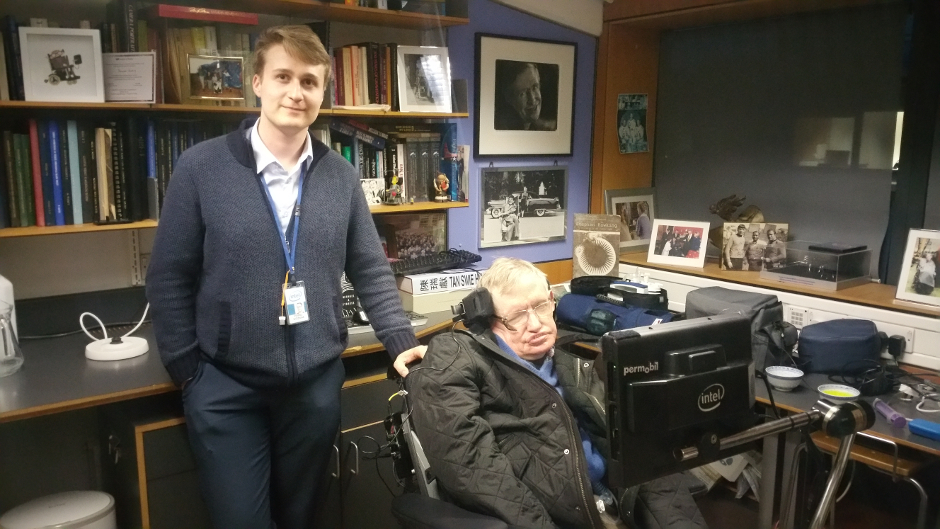
Paweł Woźniak, who is completing his Bachelor of Engineering degree at Huddersfield University, earned a year’s work placement with Intel in Swindon and his varied responsibilities included an assignment to visit Prof Hawking in Cambridge to troubleshoot the renowned physicist’s communication devices.
The devices include a “blink sensor” that the Professor uses to select words via an infrared switch mounted on his spectacles and the synthesiser that produces his voice.
The history of the technology dates back to 1980s, but since the late 1990s, Intel has been responsible for maintaining Hawking’s equipment. The company also wrote the program named ACAT that is now the Professor’s main computer interface.
“I got involved by offering my help with the blink sensor to one of the Intel engineers who provide technical support to the Professor,” explained Polish-born Paweł. “He was kind enough to let me go with him, and then as our co-operation worked out pretty well it became a more regular thing.”
During his work-placement year, Paweł paid six visits to Stephen Hawking. He began by analysing and fixing problems that impacted the operation of the blink sensor, and he also provided a back-up system. He dealt with some of the issues on site, but he also took some of the circuitry back to Swindon for testing and improvement.
“Meeting Stephen Hawking was one of the greatest experiences of my life, as I have a very strong interest in science in general – including maths, physics, and cosmology – and his work has always inspired me,” said Paweł.
“I enjoy projects that help people improve their lives. It’s great to realise that modern technology has allowed the Professor to continue communicating his breakthrough discoveries to the world even after he lost almost all of his movement.”
Paweł earned his placement at Intel after a competitive process that included a day-long assessment. Then came a packed 13 months in which Paweł’s wide range of experiences included working in a lab with High-Performance Computer Systems, but also working closely with customers and supporting various events, such as the HPE Discover London 2016.
Now back at the Huddersfield University, Paweł has embarked on a final-year project that draws inspiration from his year at Intel.




Collaboration to address viable solutions for VAWG database
<blockquote>address the lack of standardisation, coordination, and collaboration of gender disaggregated data intelligence across various regions,...